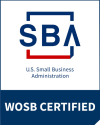Where to go and how to find the information you need to help your child
Jean Murrell Adams, Esq.
They say knowledge is power. But where can you find the necessary information to help your child with special needs? Where do you start? How can you make sense of all of the laws and rules? Importantly, even if you do learn all of your rights, who can you turn to for help in enforcing them? How do you know whether or not you need help in advocating for your child?
Based on our experience representing thousands of parents and caregivers, we’ve developed a quick guide for parents new to special education and those who are more experienced, but may want a few tips to assist in advocacy. This is not intended to be viewed as legal advice, but instead is a summary of the recommendations of many of the parents that we have been so privileged to represent. These tips are focused on parents in California and Nevada where we practice. However, parents, providers and caregivers, in other areas may benefit from them as well so feel free to share.
Where Do I Start?
1. Start local. Many experts recommend that parents start by researching federal special education laws and drilling down from there. But those laws can seem complicated and irrelevant to your child’s immediate needs. Instead, it may be better to start by reviewing your local school district’s special education policies and procedures. For example, if you Google or use your smart speaker to search the Clark County School District (CCSD) Special Education Policies and Procedures, you will find nearly 150 pages of detailed rules that the school district itself says it must follow. The Los Angeles Unified School District similarly has a hefty 358-page manual. Once you learn these rules, you can cite to parts of their own manuals to support your demands.
For example, if your child has been suspended from bus transportation, Chapter 9 of the CCSD manual provides important safeguards that you can refer to in order to protect her. Also, always review your local school district or charter school’s Notice of Special Education Procedural Safeguards as these contain important (and time-sensitive) notifications about your rights. Caution: in our experience, these manuals and procedural safeguard notices are typically stale and out of step with more recent laws and court decisions. So never solely rely on them. Review these guides with the school district’s special education director or your child’s case manager before an IEP meeting. Often parents are given notices at their child’s IEP meeting when there is little or no time to
2. Sign up. Don’t just search for information on the internet, let the information come to you. Join a few social media groups that feed you information relevant to your child, school district or both. This helps you to establish a reality check or baseline as to what to expect in terms of supports and services for your child. Set alerts using Google News to automatically identify and send articles to your inbox regarding special education issues or developments regarding your child’s area of disability. Subscribe to newsletters from respected sources like ADAMS ESQ and Wrightslaw. For busy parents, it’s often easier to absorb a little information daily than devoting hours of time learning how to navigate the special education system.
3. Get involved. Computers are fine, but sometimes you need boots on the ground in order to find out how your school district really works and how to best advocate for your child. Your local parent network can also provide referrals for service providers, evaluators and advocates if necessary. Who are the best teachers for your child? Which elementary school has an experienced principal who protects all children, including those with special education needs? What services should you demand and at what frequency and duration? Network with other parents in your general area or who have children with similar areas of need. For example, join a school-based African-American Parent Advisory Council or English Learner Advisory Committee. These parent groups often have district liaisons who can provide an inside guide to available services and supports. Also consider joining community groups like Parents Helping Parents, Support for Families, Families for Effective Autism Treatment, and your local chapter of Children and Adults with AD/HD (CHADD). Avoid common pitfalls by getting involved in parent organizations and learning from the experiences of other parents. The more you learn, the more you can help those parents and caregivers coming behind you.
4. Up your game. After you’ve read your school district or charter school’s guidelines, set up a system for “push” information, and gotten involved with one or two local parent groups, you can take your networking and knowledge game to the next level by participating in local, statewide and national special education seminars. Organizations and agencies like regional centers, state-funded parent support groups and even school districts often sponsor informative forums for parents. The M.I.N.D. Institute in Davis, California has an excellent (and free) annual neurodiversity summit. The Council of Parent Attorneys and Advocates also sponsors an outstanding and affordable nationwide annual conference for parents and the attorneys who love them.

